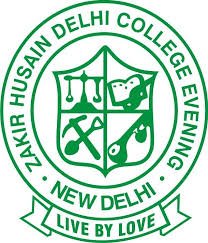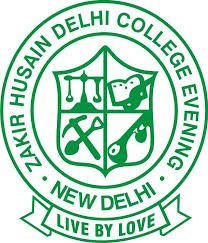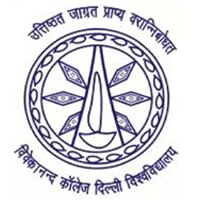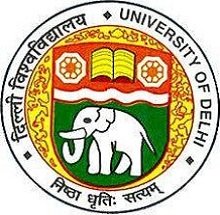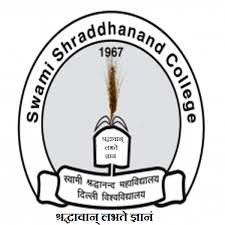MASTER OF SCIENCE [M.SC]
2 Years
M.Sc. (Master of Science) Specializations Offered:
While Zakir Husain Delhi College may offer a range of science subjects, the specific M.Sc. programs available at the college will depend on the disciplines offered by the department. The M.Sc. program is typically offered in the following specializations:
-
M.Sc. in Physics
-
M.Sc. in Chemistry
-
M.Sc. in Mathematics
-
M.Sc. in Botany
-
M.Sc. in Zoology
Program Structure:
The M.Sc. program at Zakir Husain Delhi College is divided into 4 semesters over 2 years, with each year consisting of 2 semesters.
Year 1 (Semester 1 & 2):
-
Core Subjects: In the first year, students are introduced to advanced concepts and topics in their chosen subject. For example:
-
M.Sc. in Physics: Topics like Classical Mechanics, Electromagnetic Theory, Quantum Mechanics, and Mathematical Physics.
-
M.Sc. in Chemistry: Topics such as Physical Chemistry, Inorganic Chemistry, Organic Chemistry, and Analytical Chemistry.
-
M.Sc. in Mathematics: Courses in Abstract Algebra, Real Analysis, and Topology.
-
-
Practical Work: Students engage in laboratory work, experiments, and data analysis relevant to their field.
Year 2 (Semester 3 & 4):
-
Specialization: In the second year, students dive deeper into specialized topics related to their chosen discipline.
-
M.Sc. in Physics might include Solid-State Physics, Nuclear Physics, Condensed Matter Physics, or Electronics.
-
M.Sc. in Chemistry might cover Environmental Chemistry, Biochemistry, Medicinal Chemistry, or Polymer Chemistry.
-
M.Sc. in Mathematics could include Complex Analysis, Differential Equations, and Functional Analysis.
-
-
Research Project/Dissertation: In the final semester, students may be required to complete a research project or dissertation, which allows them to apply their theoretical knowledge to practical problems or explore new areas of research.
Skill Enhancement Courses (SEC):
-
These are additional courses designed to improve practical skills that complement academic learning, such as Scientific Writing, Research Methodology, or Data Science for students pursuing advanced degrees in the sciences.
Assessment & Evaluation:
-
Internal Assessment: Includes regular assignments, presentations, lab reports, and class participation.
-
End-Semester Examinations: Students are evaluated at the end of each semester through written exams, which test their understanding of both theoretical and practical aspects of the subject.
Career Opportunities After M.Sc.:
Graduates of the M.Sc. program from Zakir Husain Delhi College can explore various career options in academia, research, industry, and government. Some career paths include:
-
Further Studies and Research:
-
Ph.D.: Students can pursue a Ph.D. in their specialized field of study and engage in research in universities, research institutions, or laboratories.
-
M.Phil.: Students may opt for M.Phil. programs before pursuing a Ph.D..
-
-
Research & Development (R&D):
-
Graduates can work in R&D sectors, contributing to innovations in industries such as pharmaceuticals, biotechnology, electronics, and environmental science.
-
-
Teaching and Academia:
-
Graduates can choose to become lecturers or professors in schools, colleges, or universities, depending on their further qualifications (e.g., NET or SET exams).
-
Some may pursue careers in academic research or scientific publishing.
-
-
Industry:
-
Graduates can work in industries related to their field, including:
-
Pharmaceuticals, chemical industries, biotech firms, environmental consulting, and material science for those with an M.Sc. in Chemistry or Biology-related fields.
-
IT and software for those with an M.Sc. in Mathematics or Physics (e.g., data science, analytics, machine learning).
-
Energy sector, telecommunications, and electronics for those with an M.Sc. in Physics.
-
-
-
Government Sector:
-
Graduates can take competitive exams like UPSC, SSC, or Indian Forest Services (IFS) for government roles related to science and technology.
-
They can also work in government-run research institutions like CSIR, ISRO, or DRDO.
-
-
Science Communication:
-
Some graduates with excellent communication skills may venture into science journalism, technical writing, or public relations for scientific organizations.
-
-
Entrepreneurship:
-
With an M.Sc. in a scientific discipline, graduates can launch startups in fields like biotechnology, pharmaceuticals, environmental science, or data analytics.
-
Admission Process:
-
Eligibility: Admission to the M.Sc. program at Zakir Husain Delhi College typically requires a B.Sc. (Hons.) or an equivalent undergraduate degree in the relevant discipline (e.g., B.Sc. Physics for M.Sc. in Physics, B.Sc. Chemistry for M.Sc. in Chemistry, etc.).
-
Entrance Exam: Admission is often based on the entrance exam conducted by the University of Delhi or the respective department. Some programs might also consider the marks obtained in the undergraduate degree for selection.
-
Merit-Based Admission: In some cases, students may be admitted based on their undergraduate academic performance and overall merit.

